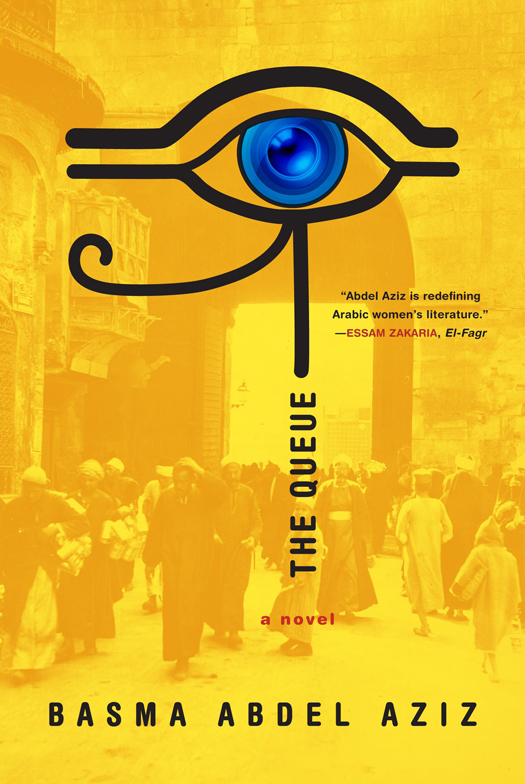
The Queue
کتاب های مرتبط
- اطلاعات
- نقد و بررسی
- دیدگاه کاربران
نقد و بررسی

May 16, 2016
In this allegorical novel from controversial Egyptian journalist Aziz, a failed political uprising leads to the establishment of a totalitarian regime known as the Gate, whose principal means of control is making its subjects wait in an endless line, the titular queue. A young man, Yehya, is shot by riot police during the revolt, an act of violence that the Gate flatly refuses to acknowledge, and much of the novel's story revolves around the unrecognized bullet still lodged in Yehya's gut. The large cast of characters includes Tarek, a conflicted physician; Nagy, Yehya's devoted friend; and Amani, a woman who puts herself at great risk to get Yehya the surgery he desperately needs. At its best, the novel captures a sense of futility and meaninglessness, but its impersonal tone and uneventful middle contribute, at times, to a lack of urgency. This sense is remedied, albeit too quickly, in a strong finale in which Tarek races along the queue to rescue a dying Yehya. Aziz ultimately suggests the worst while leaving the smallest space for hopeful interpretation, a fitting metaphor for Egypt after the Arab Spring.

June 15, 2016
A psychiatrist who treats torture victims at Cairo's Nadeem Center, Abdel Aziz has denounced government injustice in a weekly newspaper column and three published books. So she has earned the right to offer this debut novel about an unnamed, apparently Egyptian city ruled by the Gate, a political authority so dominant that doctors cannot operate without permission and even window shopping is taxed. With authorization required for everything, a long queue has formed outside the perpetually closed Gate (recalling Olga Grushin's The Line). Among those waiting are Yehya, injured in a squelched popular uprising called the Disgraceful Events; Ines, in trouble for allowing a student to read a provocative essay aloud; journalist Ehab, shocked to learn that he's been spied on; and Shalaby, a Servant Force guard seeking justice for a cousin felled in battle. Dr. Tarek Fahmy, his conscience increasingly pricked, intervenes throughout. VERDICT The increasingly driven narrative deftly weaves together the characters' disparate stories to provide an arresting portrayal of totalitarian control.
Copyright 2016 Library Journal, LLC Used with permission.

























دیدگاه کاربران